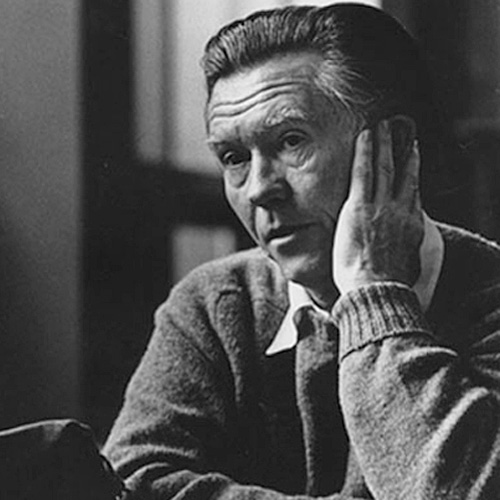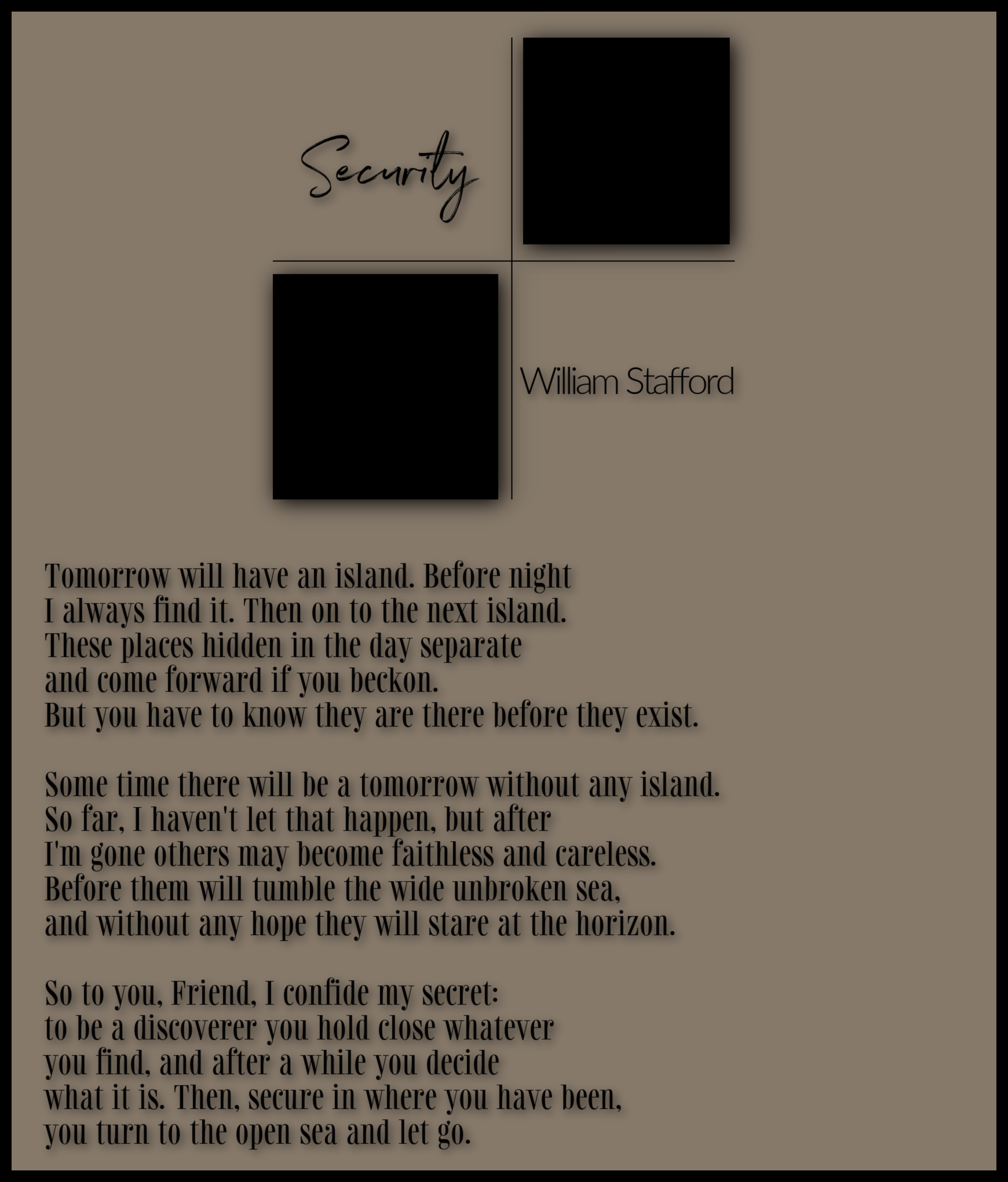
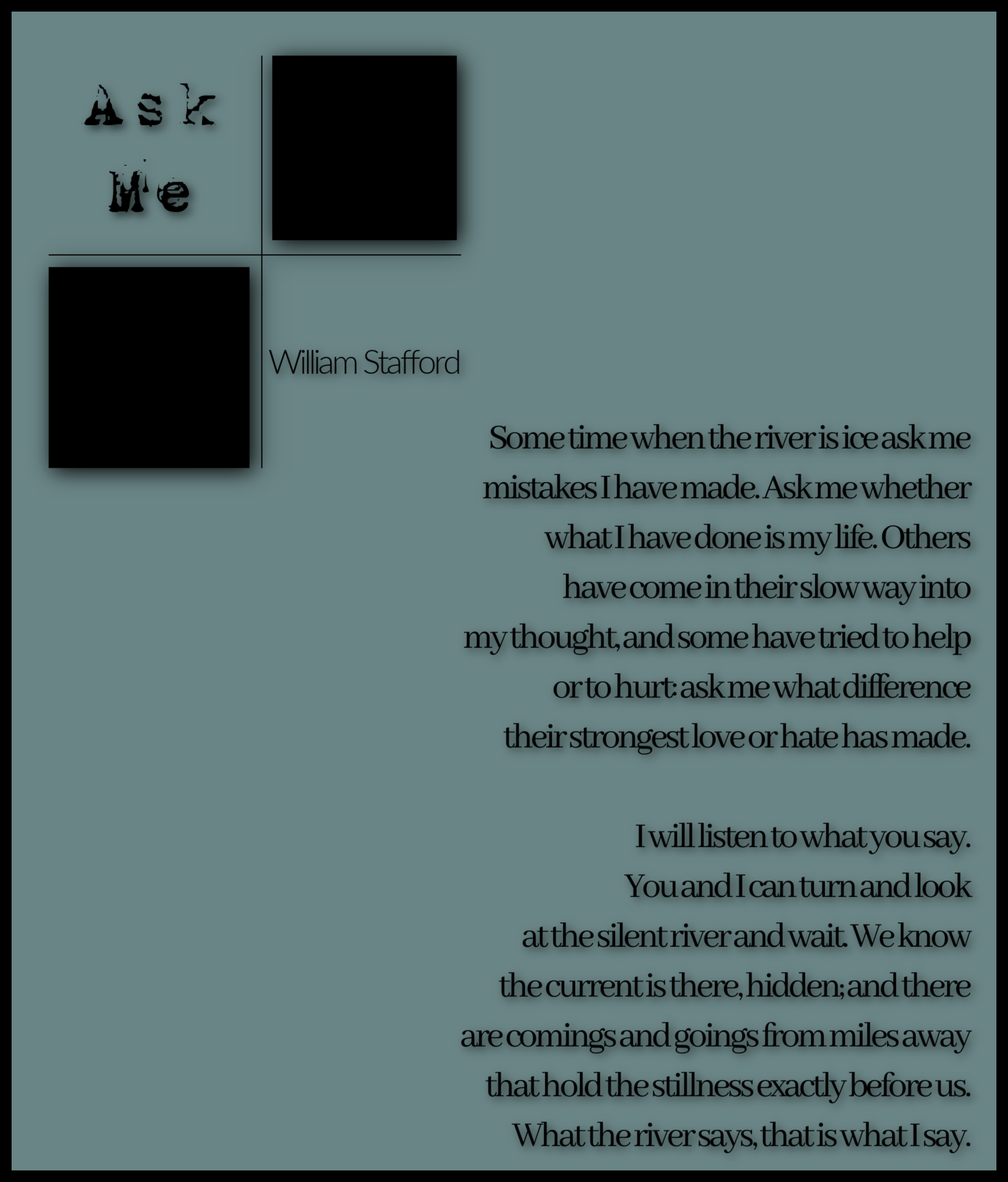
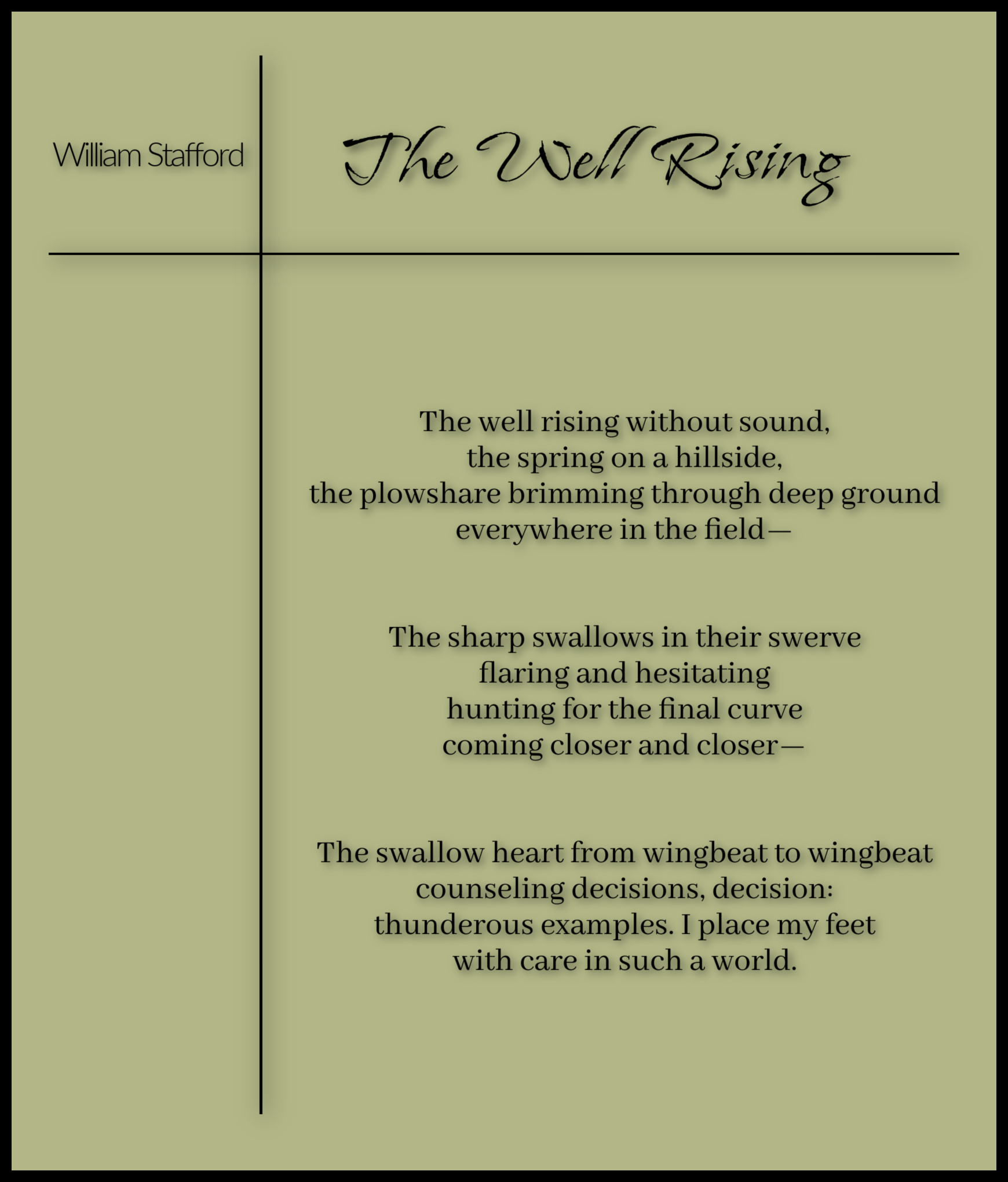
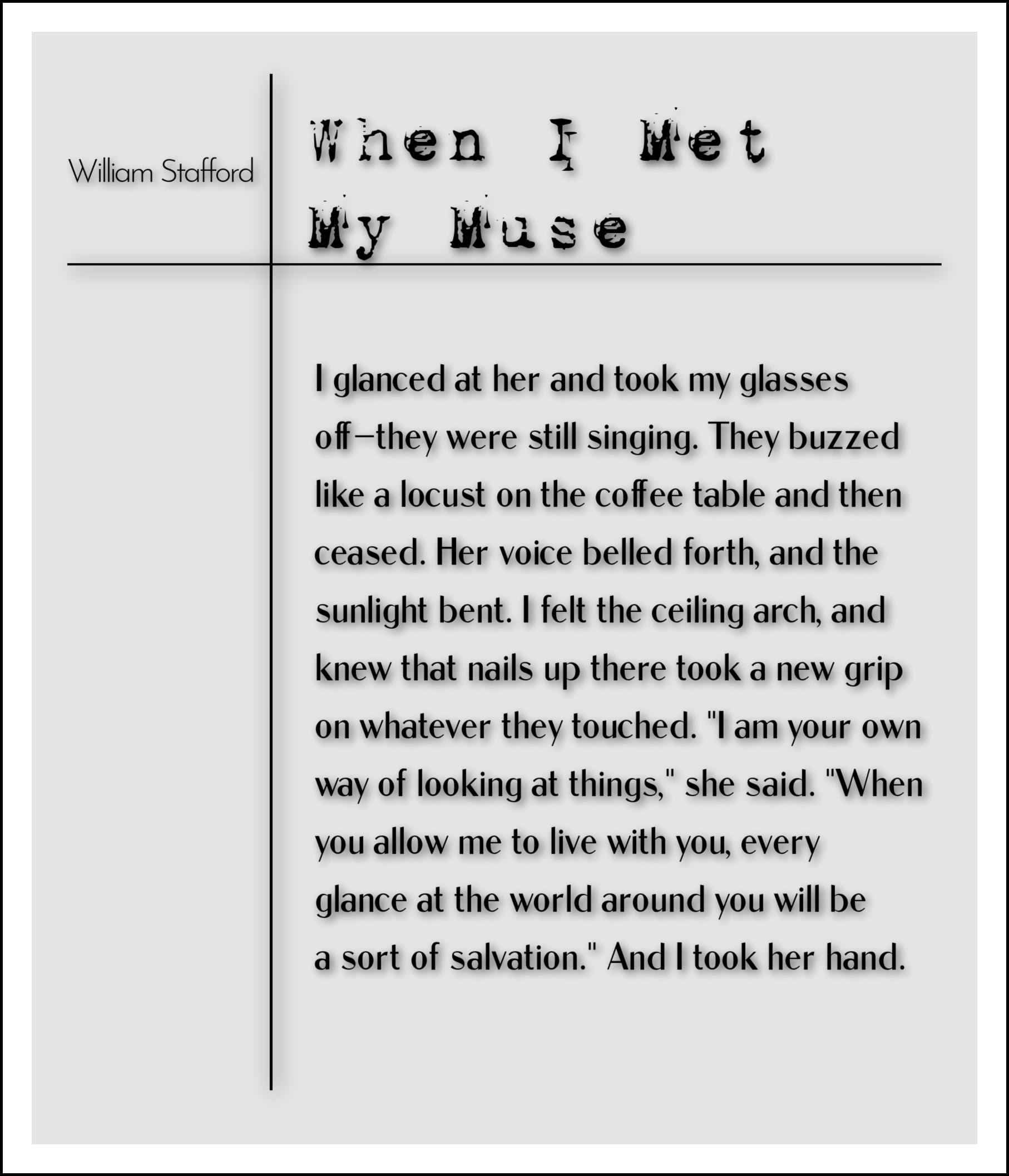
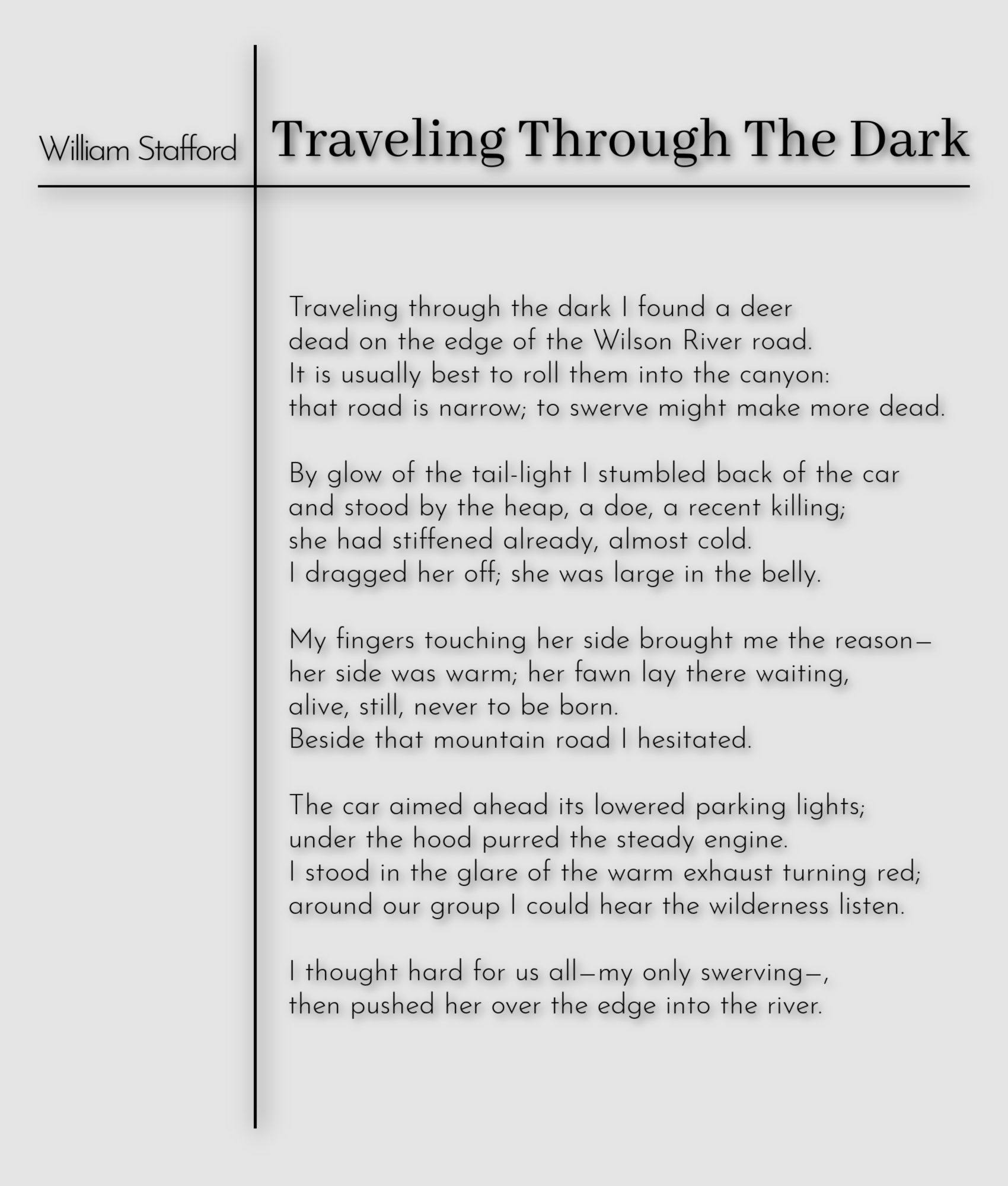
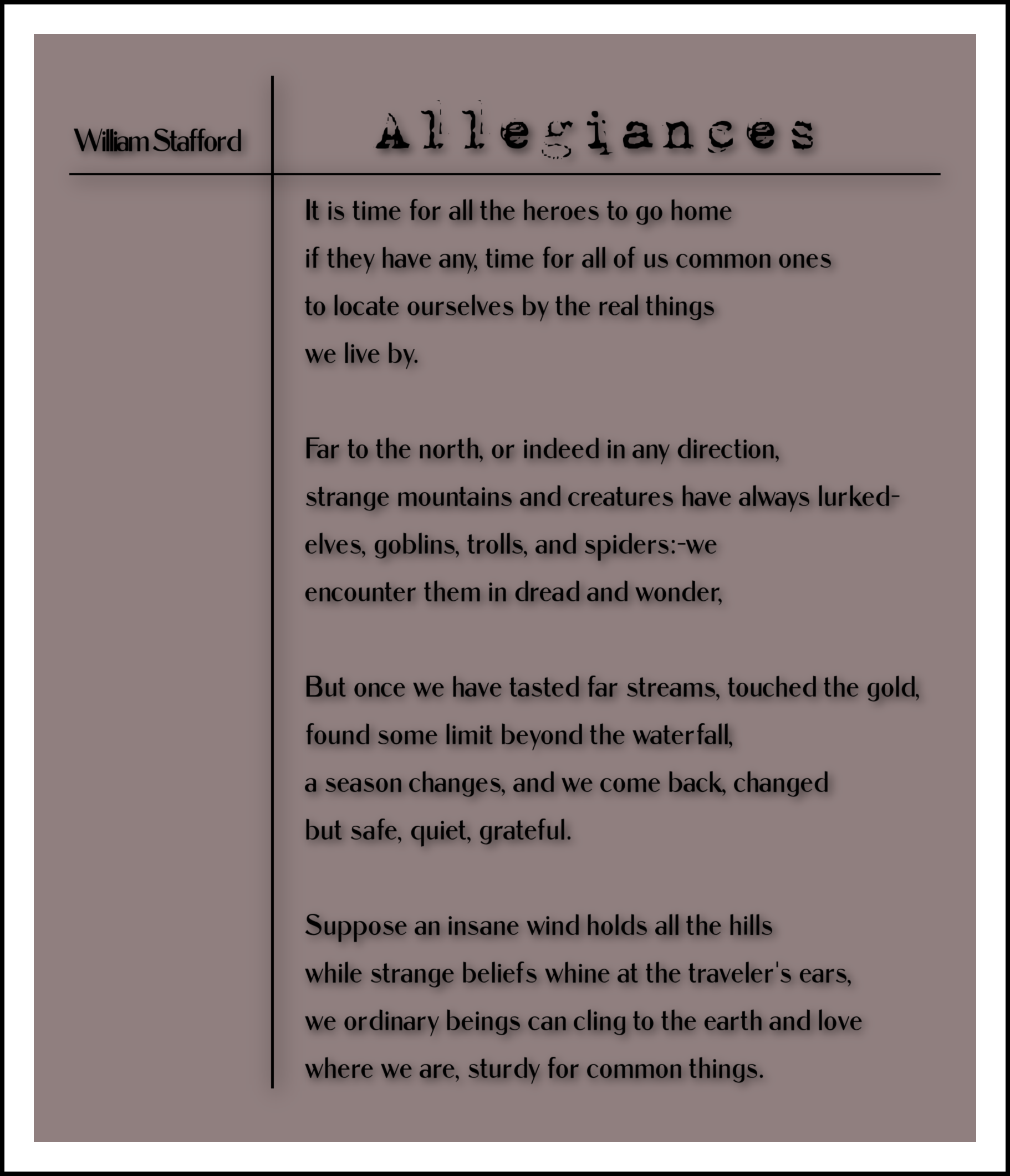
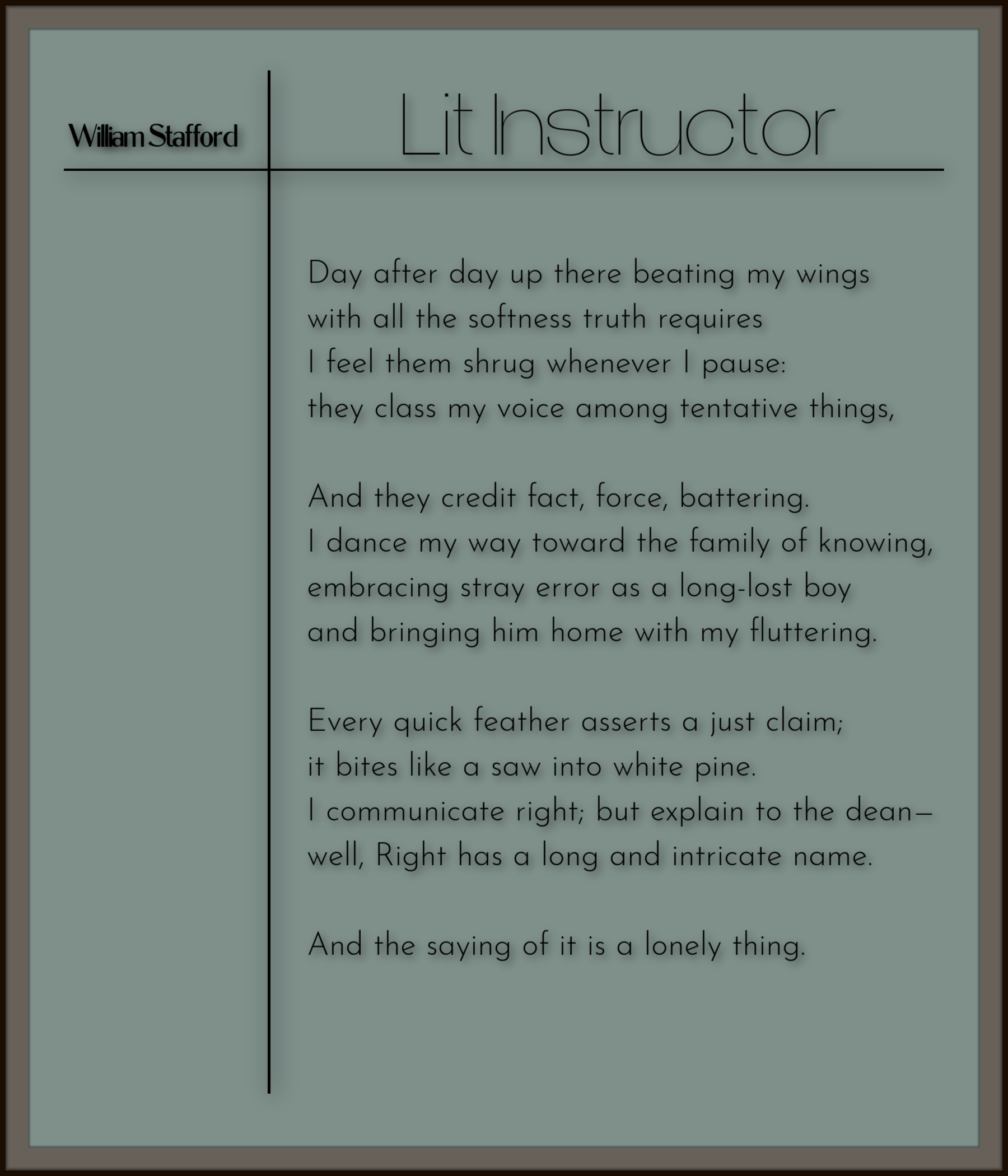
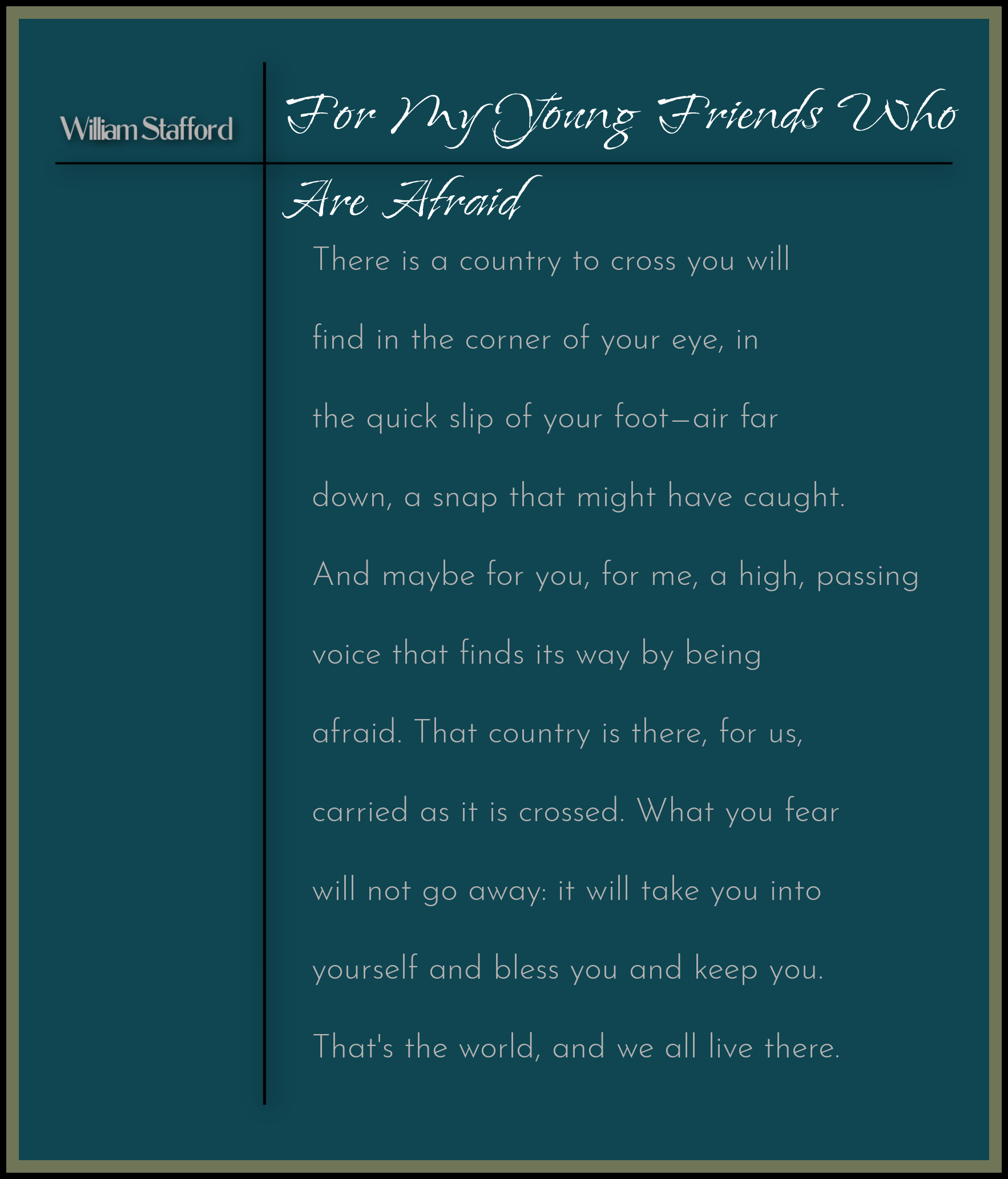
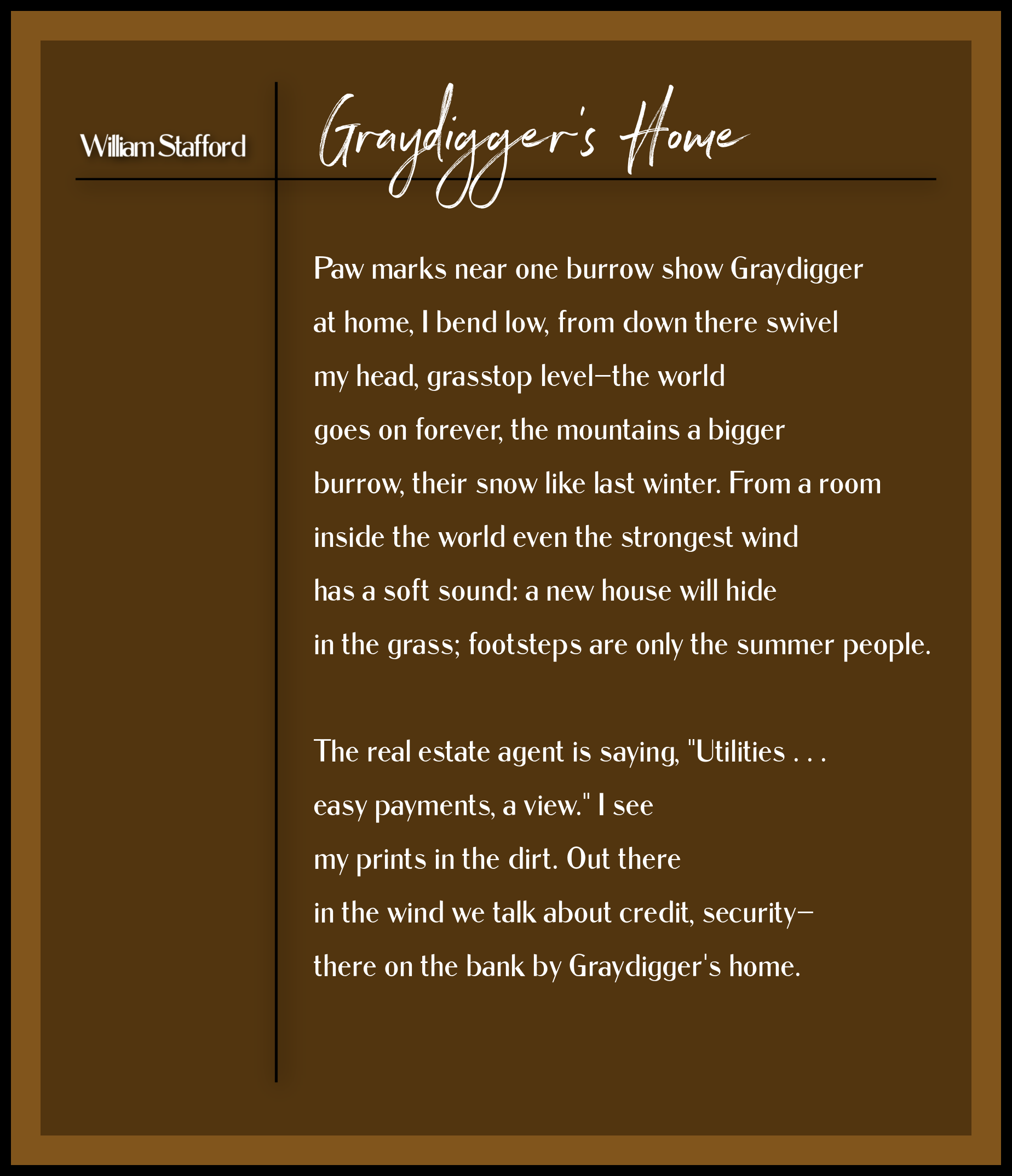
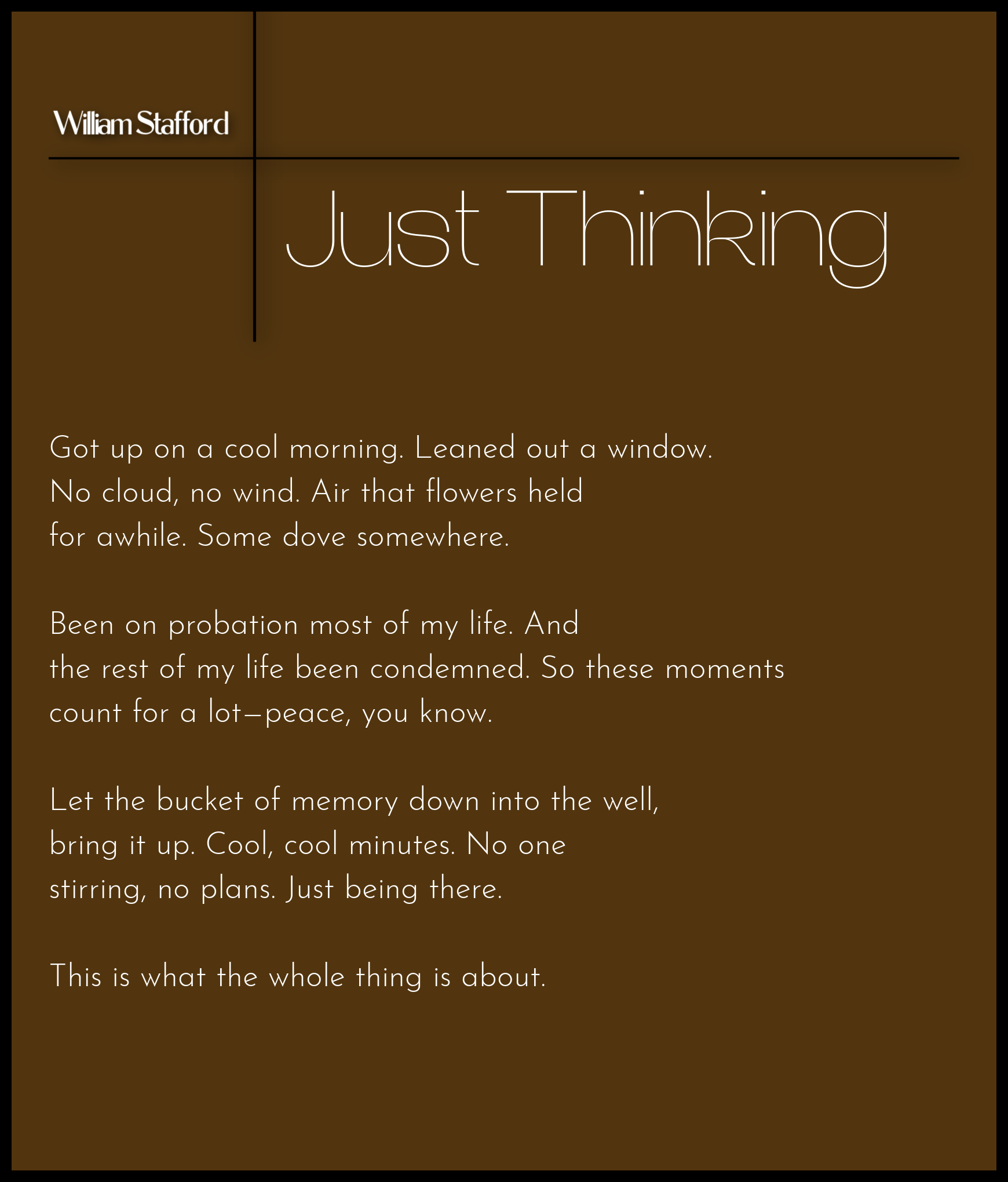
At The Un-National Monument Along The Canadian Border
This is the field where the battle did not happen,
where the unknown soldier did not die.
This is the field where grass joined hands,
where no monument stands,
and the only heroic thing is the sky.
Birds fly here without any sound,
unfolding their wings across the open.
No people killed – or were killed – on this ground
hallowed by neglect and an air so tame
that people celebrate it by forgetting its name.
Notice What This Poem Is Not Doing
The light along the hills in the morning
comes down slowly, naming the trees
white, then coasting the ground for stones to nominate.
Notice what this poem is not doing.
A house, a house, a barn, the old
quarry, where the river shrugs—
how much of this place is yours?
Notice what this poem is not doing.
Every person gone has taken a stone
to hold, and catch the sun. The carving
says, "Not here, but called away."
Notice what this poem is not doing.
The sun, the earth, the sky, all wait.
The crowns and redbirds talk. The light
along the hills has come, has found you.
Notice what this poem has not done.
Atavism
1
Sometimes in the open you look up
where birds go by, or just nothing,
and wait. A dim feeling comes
you were like this once, there was air,
and quiet; it was by a lake, or
maybe a river you were alert
as an otter and were suddenly born
like the evening star into wide
still worlds like this one you have found
again, for a moment, in the open.
2
Something is being told in the woods: aisles of
shadow lead away; a branch waves;
a pencil of sunlight slowly travels its
path. A withheld presence almost
speaks, but then retreats, rustles
a patch of brush. You can feel
the centuries ripple generations
of wandering, discovering, being lost
and found, eating, dying, being born.
A walk through the forest strokes your fur,
the fur you no longer have. And your gaze
down a forest aisle is a strange, long
plunge, dark eyes looking for home.
For delicious minutes you can feel your whiskers
wider than your mind, away out over everything.
Objector
In line at lunch I cross my fork and spoon
to ward off complicity—the ordered life
our leaders have offered us. Thin as a knife,
our chance to live depends on such a sign
while others talk and The Pentagon from the moon
is bouncing exact commands: "Forget your faith;
be ready for whatever it takes to win: we face
annihilation unless all citizens get in line."
I bow and cross my fork and spoon: somewhere
other citizens more fearfully bow
in a place terrorized by their kind of oppressive state.
Our signs both mean, "You hostages over there
will never be slaughtered by my act." Our vows
cross: never to kill and call it fate.
Across Kansas
My family slept those level miles
but like a bell rung deep till dawn
I drove down an aisle of sound,
nothing real but in the bell,
past the town where I was born.
Once you cross a land like that
you own your face more: what the light
struck told a self; every rock
denied all the rest of the world.
We stopped at Sharon Springs and ate—
My state still dark, my dream too long to tell.
Returned To Say
When I face north a lost Cree
on some new shore puts a moccasin down,
rock in the light and noon for seeing,
he in a hurry and I beside him
It will be a long trip; he will be a new chief;
we have drunk new water from an unnamed stream;
under little dark trees he is to find a path
we both must travel because we have met.
Henceforth we gesture even by waiting;
there is a grain of sand on his knifeblade
so small he blows it and while his breathing
darkens the steel his become set
And start a new vision: the rest of his life.
We will mean what he does. Back of this page
the path turns north. We are looking for a sign.
Our moccasins do not mark the ground.
Hay-Cutters
Time tells them. They go along touching
the grass, the feathery ends. When it feels
just so, they start the mowing machine,
leaving the land its long windrows,
and air strokes the leaves dry.
Sometimes you begin to push; you want to
hurry the sun, have the hours expand, because
clouds come. Lightning looks out from their hearts.
You try to hope the clouds away.
"Some year we'll have perfect hay."
Remembering Mountain Men
I put my foot in cold water
and hold it there: early mornings
they had to wade through broken ice
to find the traps in the deep channel
with their hands, drag up the chains and
the drowned beaver. The slow current
of the life below tugs at me all day.
When I dream at night, they save a place for me,
no matter how small, somewhere by the fire.
American Gothic
If we see better through tiny,
grim glasses, we like to wear
tiny, grim glasses.
Our parents willed us this
view. It's tundra? We love it.
We travel our kind of
Renaissance: barnfuls of hay,
whole voyages of corn, and
a book that flickers its
halo in the parlor.
Poverty plus confidence equals
pioneers. We never doubted.
|
|
